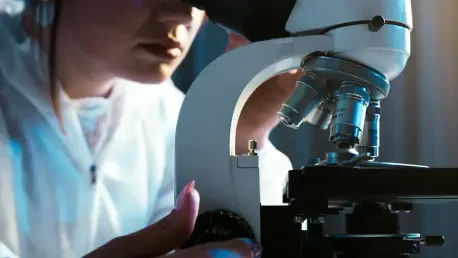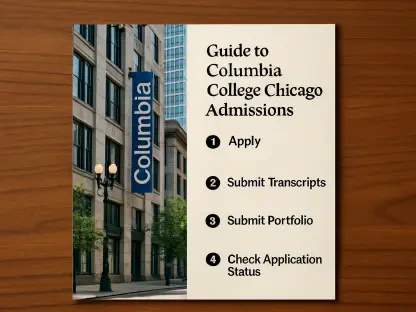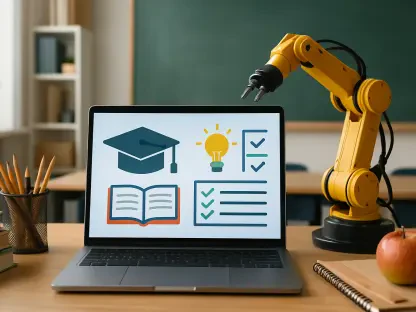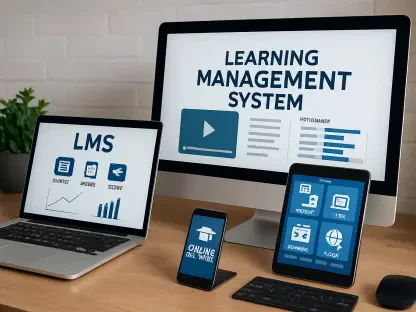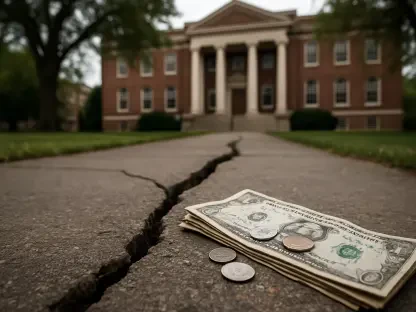In a world where cancer remains one of the most formidable health challenges, initiatives that engage young minds in groundbreaking research are more crucial than ever, and Howard University, in collaboration with Johns Hopkins University, has taken a bold step forward with the School2Lab program. This innovative summer initiative is designed to immerse high school students from the Washington D.C., Maryland, and Virginia (DMV) area in the intricate field of clinical cancer research. Spanning eight weeks, this program offers teens a unique chance to work on real-world projects, fostering skills and passion that could shape the future of medical science. More than just an educational experience, it serves as a powerful tool to address systemic issues like racial disparities in cancer outcomes by inspiring underrepresented youth to pursue careers in STEM (Science, Technology, Engineering, and Mathematics). This effort, backed by a $1.3 million grant from the National Cancer Institute, underscores a commitment to equity and excellence in scientific discovery.
Building a Foundation for Future Innovators
School2Lab stands as a cornerstone of the Howard-Johns Hopkins Comprehensive Alliance in Cancer Research, Education, and Equity (##CAREE), a significant initiative aimed at increasing African American representation in cancer research and related fields. The program targets high school students, a demographic often overlooked for such advanced opportunities, with the goal of sparking early interest in medical physics and clinical research. By providing access to cutting-edge facilities and projects at Howard University, it seeks to dismantle barriers that have historically limited diversity in STEM professions. Under the guidance of esteemed leaders like Dr. Carla D. Williams, interim director of Howard’s Cancer Center, and Dr. Rao Khan, the program’s director, participants are not just learning—they are contributing to meaningful advancements. The focus on health equity ensures that the benefits of scientific progress reach underserved communities, addressing disparities in cancer care through education and empowerment at the grassroots level.
Beyond the laboratory, School2Lab offers a comprehensive curriculum that prepares students for the multifaceted demands of a career in science. Hospital tours provide a firsthand look at clinical environments, while guest speaker sessions introduce teens to industry pioneers who share insights on current challenges and innovations. Workshops on essential skills like math, writing, and bioethics complement hands-on research, ensuring participants develop a well-rounded foundation. Additionally, college readiness modules help students navigate the path to higher education, equipping them with the tools to succeed long after the program ends. This holistic approach bridges theoretical knowledge with practical application, showing students how disciplines like physics and technology intersect to solve complex health issues. By fostering both technical expertise and a broader understanding of the professional landscape, School2Lab cultivates confidence in teens, encouraging them to envision themselves as future leaders in the fight against cancer.
Personal Growth Through Hands-On Discovery
The impact of School2Lab on its inaugural cohort of five students from diverse DMV schools reveals the transformative power of immersive learning. Consider the journey of Aniah Garcia-Charway, a rising senior who entered the program with no prior research experience. Tasked with a project on enhancing breast cancer classification through neural networks, she mastered coding in Python and designed systems to analyze mammogram images. This exposure to a professional research setting broadened her perspective on potential career paths, igniting a newfound ambition to contribute to medical advancements. Her story highlights how School2Lab serves as a gateway for teens to explore uncharted territories in science, often revealing talents and interests they didn’t know they possessed. The program’s ability to turn curiosity into concrete skills demonstrates its role as a catalyst for personal and academic growth among young participants.
Equally compelling is the experience of Iremofe Seun-Olufemi, who initially showed little enthusiasm for research but discovered a passion while working on developing nickel and cobalt-free lithium-ion batteries. Under expert mentorship, he tested innovative ideas and gained insights into the scientific process, ultimately expressing a desire to pursue research in college. Meanwhile, Arsema Girma delved into the study of environmental carcinogens using advanced lab techniques, an endeavor that reinforced her commitment to a medical career. The engaging lab environment and impactful hospital visits left lasting impressions, showing her the real-world implications of her work. These varied experiences underscore a shared outcome among participants: School2Lab not only hones technical abilities but also reshapes aspirations. By offering a supportive space to experiment and learn, it empowers teens to see themselves as capable of making significant contributions to science and healthcare.
A Model for Equity and Innovation in STEM
School2Lab reflects a broader movement in STEM education to provide early research opportunities to underrepresented groups, addressing a critical gap in access for high school students, particularly those from marginalized backgrounds. Many teens at this stage lack exposure to professional scientific environments, a barrier that can limit future career prospects in specialized fields like cancer research. By targeting this demographic, the program aligns with national efforts to diversify the STEM workforce, ensuring that talent from all communities is nurtured and recognized. This focus on inclusion also ties into improving health outcomes, as diverse perspectives in research can lead to more comprehensive solutions for disparities in cancer care. School2Lab’s commitment to equity positions it as a pioneering effort, demonstrating how targeted outreach can create pathways for systemic change in both education and healthcare.
Another layer of significance lies in the program’s connection to Howard University’s recent attainment of R1 status by the Carnegie Classification, marking it as the first Historically Black College or University (HBCU) to achieve this recognition for high research activity. This milestone amplifies the importance of initiatives like School2Lab, which embody Howard’s dedication to expanding research opportunities and fostering academic excellence. The integration of interdisciplinary approaches—merging physics, clinical research, and computational tools—mirrors a shift in scientific education toward collaborative problem-solving. Such methods prepare students for the complexities of modern research while positioning them as innovators ready to tackle pressing global challenges. As a beacon of progress, School2Lab proves that early inspiration can yield lasting impact, setting a precedent for how educational programs can drive diversity and innovation in the scientific community.
Reflecting on a Legacy of Inspiration
Looking back, School2Lab emerged as a vital platform that reshaped the trajectories of young minds while addressing critical gaps in STEM representation. The eight-week summer initiative at Howard University offered high school students from the DMV area an unprecedented chance to engage in cancer research, leaving an indelible mark on their academic journeys. Through hands-on projects, mentorship, and exposure to clinical settings, participants gained not just skills but a renewed sense of purpose, as seen in the transformative stories of teens who discovered their potential in science. For future steps, expanding such programs to reach more students across diverse regions could amplify their impact, ensuring that talent from all backgrounds finds a place in research. Additionally, sustained funding and partnerships will be key to scaling these efforts, reinforcing the pipeline of underrepresented scientists. School2Lab’s model offers a blueprint for educational outreach, highlighting how targeted initiatives can pave the way for a more equitable and innovative future in healthcare.
